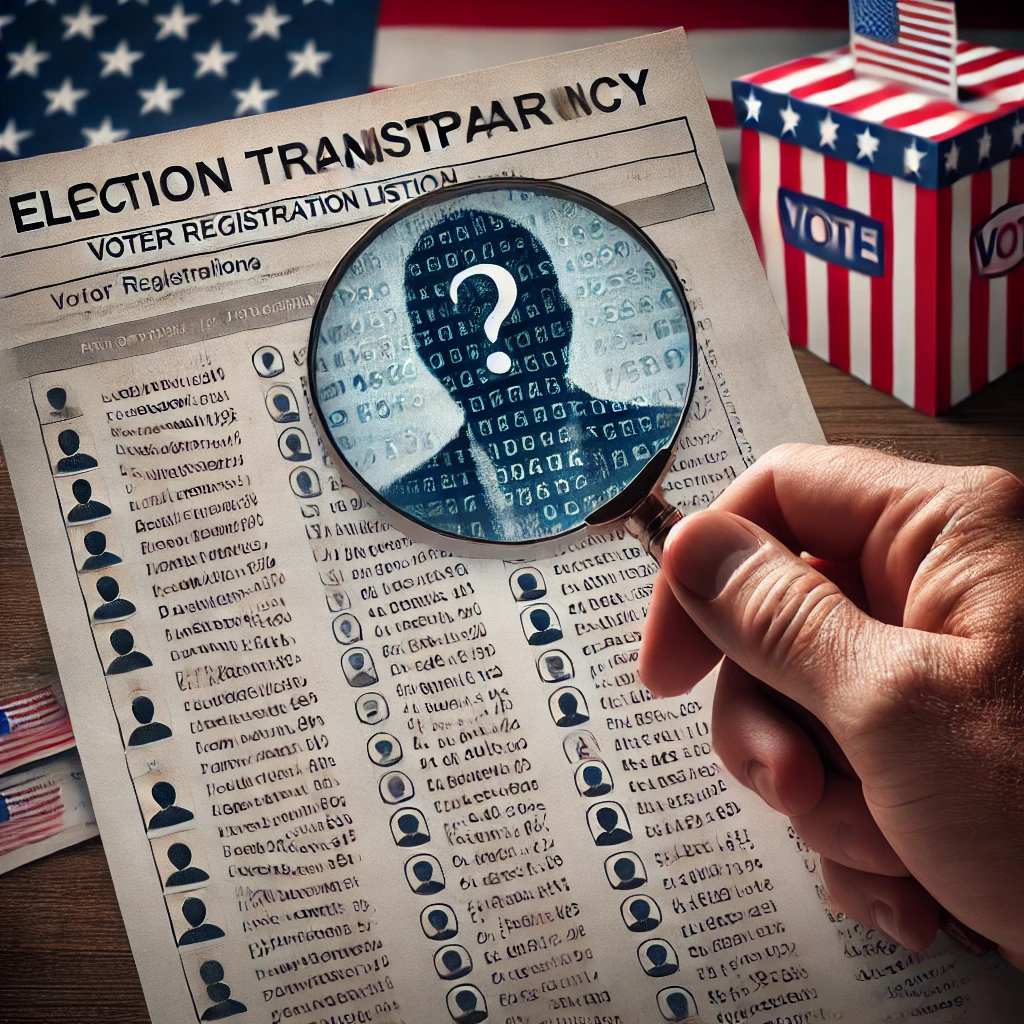A federal judge just made a big decision that could change how we keep elections honest—not just in Maryland, but across the country.
The ruling? The public has the right to inspect voter registration lists, even if state officials want to keep them under wraps.
That means if you’re worried about voter fraud or want to check if the rolls include people who’ve moved or died, you can look for yourself.
What Happened?
In Maryland, the State Board of Elections made a rule that made it almost impossible for voters to examine the state’s voter rolls. The rule even made it a crime to use the list for things like investigating voter fraud.
But voters pushed back. They filed a lawsuit: Katherine Strauch Sullivan, et al. v. Michael G. Summers, et al..
Federal Judge Matthew Maddox agreed with the voters. He struck down the rule, calling it an “obstacle” to federal law.
He said the rule violated the National Voter Registration Act (NVRA)—a federal law passed in 1993 that says states must allow the public to inspect voter lists to help keep them clean and up to date.
The judge made it clear: states can’t hide voter information that the federal law says must be public.
Why Does This Matter?
Election integrity depends on accurate and transparent voter rolls.
In Nevada and across the country, people are concerned about dead voters still on the rolls, people registered in more than one state, or those who moved years ago but never got removed.
Groups like Judicial Watch have been fighting for years to make sure states follow the law. They’ve already helped clean up over 4 million names from voter rolls in states like California, Kentucky, and New York.
This new ruling in Maryland is another major win. It confirms that ordinary citizens—and groups working on their behalf—have a right to check the lists.
Without that transparency, how can anyone trust the system?
What the Judge Said
Judge Maddox didn’t mince words.
He said the Maryland rule “presents an obstacle” to the goals of the NVRA.
In other words, it blocks the very purpose of the law—to make sure voter rolls are accurate, up-to-date, and open to inspection.
The ruling pointed to a 2019 case where Maryland was already told to hand over the full voter list, including names, addresses, voting history, and whether the voter was active or inactive.
And in 2020, the court added that dates of birth had to be included too. That way, voters can be properly identified and duplicates can be spotted.
What About the Critics?
Some election officials and liberal activists argue that opening up voter data could lead to privacy violations or intimidation.
They say that showing names and addresses could make people afraid to vote.
But the law is clear. Federal courts—including this one—have said the public has aright to see these records. The courts have also pointed out that big groups like Judicial Watch have the tools to do what individual citizens can’t: conduct full audits of state systems.
How This Could Affect Nevada
Nevada’s voter rolls have also come under scrutiny in recent years.
Groups like the Pigpen Project have flagged thousands of possible bad registrations—people who’ve moved out of state, or even died. But state officials haven’t always responded quickly or fully.
Now, with this ruling in Maryland, similar laws or policies in other states—including Nevada—may be vulnerable to legal challenges.
If a state tries to block access to voter lists, citizens now have a powerful federal court decision to back them up.
More Legal Fights Ahead
This isn’t the only case where federal judges are stepping in.
Just recently, the Fifth Circuit Court of Appeals ruled that states can’t count ballots that arrive after Election Day. That’s another win for those who say elections should be fair, secure, and follow the law.
Meanwhile, Judicial Watch is also suing states like California, Utah, and Illinois to force compliance with the NVRA and to stop the counting of late-arriving ballots.
The Bottom Line
Transparency matters. Clean voter rolls matter. And now, thanks to this federal court ruling, voters have one more tool to make sure our elections stay honest.
As Judge Maddox made clear, hiding the data from the public is not just wrong—it’s against the law.
Let’s hope Nevada is paying attention.
Sources:
- U.S. District Court for the District of Maryland, Sullivan v. Summers
- Judicial Watch press release, March 2025
- National Voter Registration Act of 1993 (NVRA)
Like this story? Subscribe to our free newsletter at NevadaNewsAndViews.com to stay updated on election integrity and more.
This article was written with the assistance of AI. Please verify information and consult additional sources as needed.




